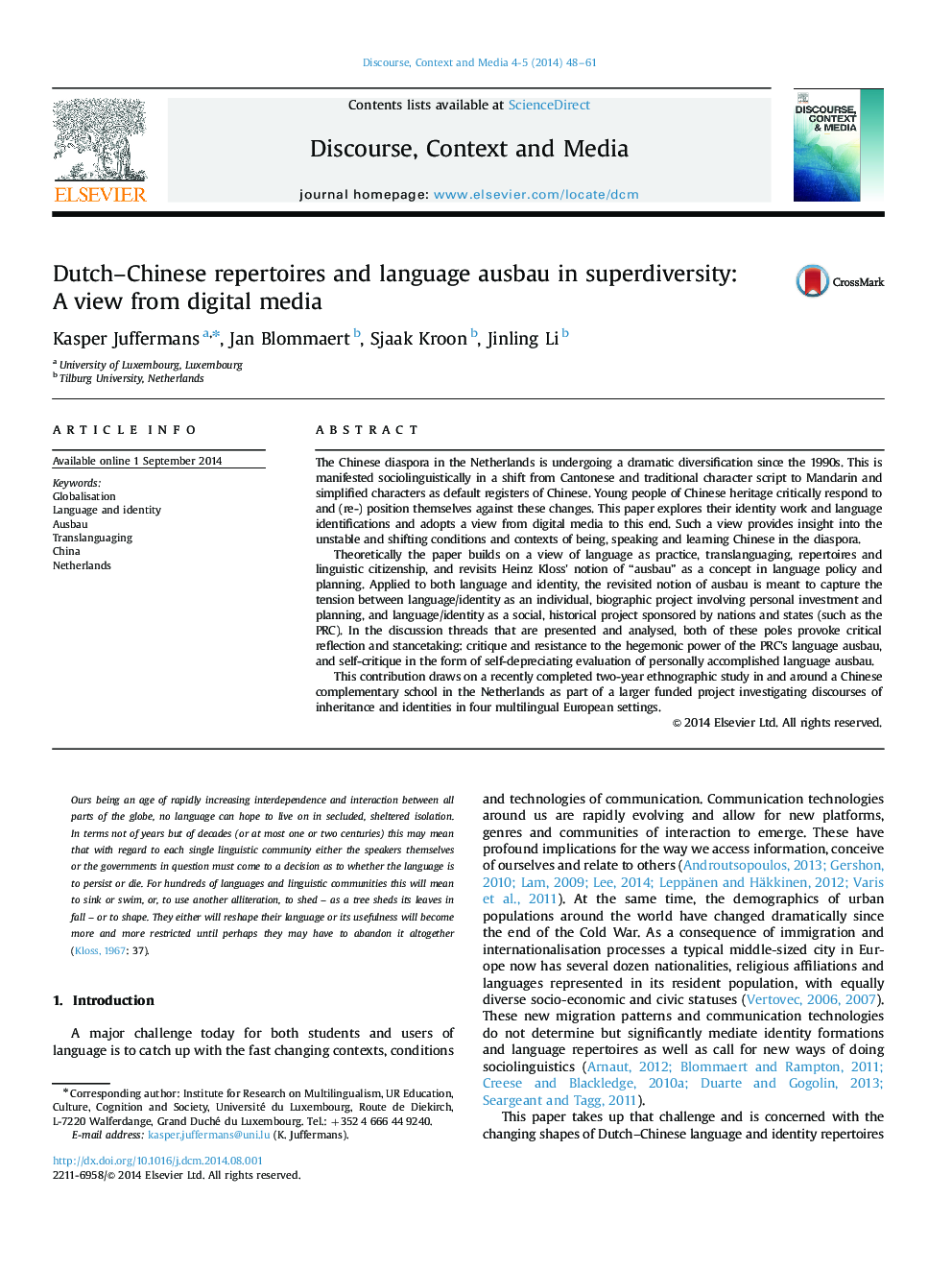| Article ID | Journal | Published Year | Pages | File Type |
|---|---|---|---|---|
| 1100585 | Discourse, Context & Media | 2014 | 14 Pages |
•Multilingual identities and ideologies are analysed through digital media.•Ausbau is revisited to capture both national and personal language planning.•The Dutch Chinese community is diversifying but linguistically homogenising.•“Resistance is futile, everybody will become Mandarin.”•Chinese heritage youth critically (re) position themselves against these changes.
The Chinese diaspora in the Netherlands is undergoing a dramatic diversification since the 1990s. This is manifested sociolinguistically in a shift from Cantonese and traditional character script to Mandarin and simplified characters as default registers of Chinese. Young people of Chinese heritage critically respond to and (re-) position themselves against these changes. This paper explores their identity work and language identifications and adopts a view from digital media to this end. Such a view provides insight into the unstable and shifting conditions and contexts of being, speaking and learning Chinese in the diaspora.Theoretically the paper builds on a view of language as practice, translanguaging, repertoires and linguistic citizenship, and revisits Heinz Kloss׳ notion of “ausbau” as a concept in language policy and planning. Applied to both language and identity, the revisited notion of ausbau is meant to capture the tension between language/identity as an individual, biographic project involving personal investment and planning, and language/identity as a social, historical project sponsored by nations and states (such as the PRC). In the discussion threads that are presented and analysed, both of these poles provoke critical reflection and stancetaking: critique and resistance to the hegemonic power of the PRC׳s language ausbau, and self-critique in the form of self-depreciating evaluation of personally accomplished language ausbau.This contribution draws on a recently completed two-year ethnographic study in and around a Chinese complementary school in the Netherlands as part of a larger funded project investigating discourses of inheritance and identities in four multilingual European settings.
